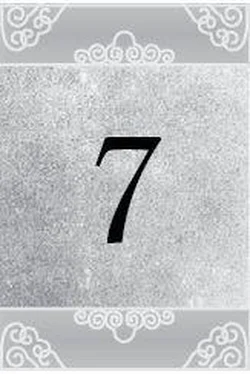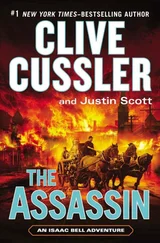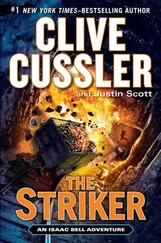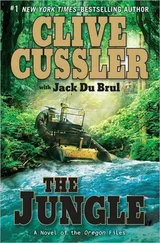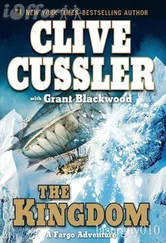“We’ll leave tonight. I wouldn’t miss this if I had to walk to Rome.”
Sam hung up. “Well, he seems enthusiastic.”
“Without that enthusiasm, the rest of us would be dead—Albrecht, you, me.”
“True,” said Sam. He watched the two fuel men disconnect the hoses from the private jet. “It looks as though we’re almost ready to head to our last stop.”
“I am,” she said. “I want a view of Rome, a nice hotel, a bath, and a dress that shows how little I’ve eaten since Moscow. And I want to sleep in a bed for at least one night instead of being out digging holes.”
“That all sounds within our reach,” Sam said. “Just one last dig and we’re done.”
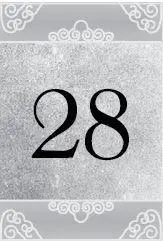
ABOVE ROME
SAM AND REMI’S PLANE DID NOT COME IN TO LEONARDO da Vinci–Fiumicino Airport, the huge international hub with forty million visitors a year. Instead they flew into Ciampino Airport, fifteen kilometers southeast of Rome. They had no luggage except a laptop computer, so they passed through customs quickly.
It took much longer to get through the Roman traffic to reach the St. Regis Grand Hotel. The hotel was spare and elegant on the outside but luxurious inside, with ornate public spaces adorned with vases of flowers. At the desk was a message from Professor Albrecht Fischer, inviting them to his suite on the tenth floor. Remi said, “I’m going to buy myself some clothes, take a bath, and then I’ll be ready to see people.” She looked at Sam, who said nothing.
“And I’d better get you some clothes too,” she said. “You look as though you’ve been digging for bones like a dog.”
“A noble beast engaged in a noble profession, but I’d better go with you,” said Sam.
They checked in, then asked the concierge to get them a driver to take them to the right stores for buying the best-quality ready-made clothes. They both bought new casual attire, and Sam bought a suit while Remi bought a cocktail dress, shoes, and purse. They took a cab to their hotel and retired to their suite for an hour before they came to Albrecht’s room and knocked.
The door swung open, and it looked as though a party was in session. There was Albrecht, and Selma Wondrash was across the room carrying around a tray of hors d’oeuvres. Pete Jeffcoat and his girlfriend and coresearcher, Wendy Corden, were acting as bartenders. Tibor Lazar and his brother János sat on a couch. There was a large table set for dinner.
“Sam! Remi!” Albrecht called out as though announcing them. “Welcome to our humble abode.” People stood up and surrounded them and then put wineglasses in their hands. Remi whispered in Sam’s ear, “This is like a dream.”
“It is,” he said. They took seats at the big table. “Sorry we’re late,” he said. “We arrived wearing the clothes we wore in a fistfight.”
“We’ve been eager to talk about the tomb,” said Selma. “Albrecht wanted to wait for you.”
Albrecht stood. “All right,” said Sam. “Go ahead.”
Albrecht said, “Well, what I believe we’re going to find is the chamber containing Attila’s remains. His message to us—to the people who found the five treasures, whoever they turned out to be—was very clear. He wanted to be buried as the guest of a daughter of the Flavian emperors.”
“Which were the Flavian emperors?” asked Sam.
“Vespasian, Titus, and Domitian, a father and two sons, who ruled Rome from 69 to 96 C.E. They built the Colosseum. Vespasian was a general commanding the eastern forces who essentially took the throne by showing up in Rome at the head of his army. That made him a hard man to argue with. Titus and Domitian inherited.”
“Why would Attila care about them?”
“I’m not sure. They were strong emperors who ruled near the height of Rome’s power. They were the first emperors who tried to take over Dacia on the Danube as a colony, and that was near the Huns’ territory, but it didn’t happen until some time after the Flavians died.”
“Then it doesn’t seem like enough,” said Remi.
“Connections are tricky. As everyone here knows, the Roman who fought Attila at Châlons, France, was named Flavius Aëtius. He was not an aristocrat from Rome but was born in what is now Bulgaria. He was sent as a young man to be a hostage of the Huns at the court of Attila’s uncle Ruga. He and Attila were friends. The name may be part of the attraction. Maybe it symbolized the ruling class of Rome for Attila.”
“And you said that Attila was a hostage too,” said Remi.
“Yes. Attila was sent to Rome by his uncle, King Ruga, at the age of twelve in 418. He was there for at least two years, I believe. What he saw was extreme wealth, along with extreme corruption and murderous conspiracies. He saw that Rome was the ultimate prize for a conqueror. He also observed and studied the practices and strategies of the Roman army, the best in the world—its strengths, methods, and its weaknesses. Since he was from a warlike people, this was probably of most interest to him.”
“And that made him want to be buried like a Roman?”
“It made him realize that Rome was the greatest empire of his era and that it was vulnerable to him. He wanted to conquer it. The burial would have been secondary, a sign he had won.”
“And you said you knew exactly where he wanted to be buried in Rome.”
“A crucial point is that none of the early Roman emperors were buried. The custom was to cremate them. If Attila wanted to be buried, as his father, uncle, brother, and other relatives were, as well as Huns as far back as we know about them, his choices were limited. For nearly all of Roman history, it was illegal to bury a body anywhere within the limits of the city.”
“So what happened?” asked Tibor.
“What happened was, the catacombs. The early Christians believed in the resurrection of the body, so they wanted to be buried, just as the Huns did. They began to dig tunnels at the edge of the city and bury people there. The first were the Catacomb of Domitilla. She was a daughter of the Flavians, a niece of Vespasian, and first cousin of both Titus and Domitian. The land originally belonged to her. Like all of the forty other catacombs that came after it, this one was dug along one of the major roads.”
“How long will it take us to find the Catacomb of Domitilla?” asked Tibor.
“Not long,” said Albrecht. “The address is 282 Via delle Sette Chiese. It’s just west of the Via Ardeatina and the Appian Way.”
“You mean it’s that simple? It’s right there in the open?”
“Not exactly,” said Albrecht. “With Attila, nothing ever seems to be simple. The Catacomb of Domitilla held one hundred fifty thousand burials. It’s fifteen kilometers of underground passages on four levels. Each tunnel is about two meters wide and over two meters high, with shelves, or platform-shaped depressions, that hold the bodies of the dead. There are offshoots and rooms, each of which has more shelves dug into the rock. This kind of rock is called tufa, which is a soft volcanic stone that hardens after it’s exposed to air. It’s what is under all of Rome. If you wished to bury someone, you would find an unused spot or extend a tunnel to make one, then hollow out a shelf in the wall and put the deceased in it. Next, you would seal the space with a slab. Carved into the slab was the name of the deceased, his age, and the date of his death.”
“But why did Attila choose a catacomb?” asked Remi. “And how would he even know about them?”
Albrecht said, “I’m sure that elucidating and explaining what Attila did will take up most of the rest of my career. Rome was the most famous place in the world. People talked about it. Attila was probably taught to admire the Flavians, two of whom are included in the group historians call the five good emperors. Many of the Flavian family were buried in the oldest parts of this catacomb. He also knew that the desecration and looting of monarchs’ graves was a concern. We know he left instructions, going to great lengths, to hide his grave. We know Attila was very cunning. Because Rome was full of people from every country in the Empire, he probably knew it would be possible for a small burial party of Huns to look innocent long enough to enter a catacomb that was outside the city limits. To hide his grave among the graves of a hundred and fifty thousand, most of them Christians who owned little that could be left as burial goods, seems to be very much the sort of thing Attila might do. And of course we have his word that this is what he did.”
Читать дальше
